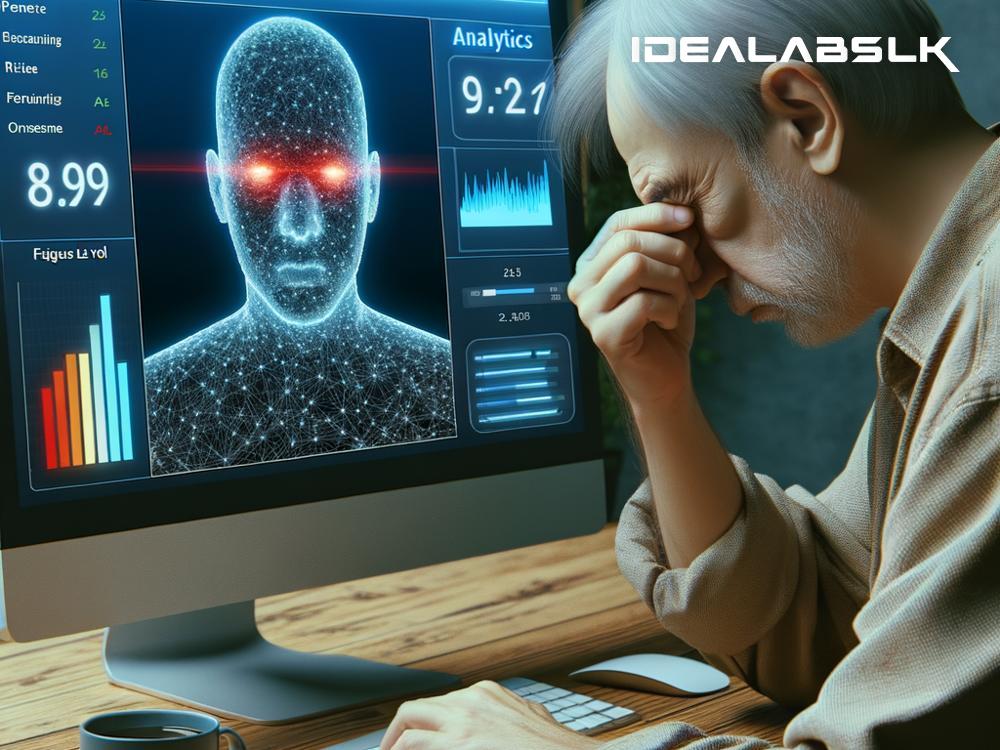Title: Unplugging Made Easy: How AI Soothes Our Screen Time Blues
In today’s digital world, our lives revolve around screens, from smartphones and laptops to televisions and tablets. While these devices have made life more convenient, their constant presence has introduced a new form of weariness known as screen time fatigue. It's that feeling of exhaustion after a Zoom marathon or a long day staring at your computer. But what if I told you that the very technology that tires our eyes is also being engineered to help fight this fatigue? Yes, Artificial Intelligence (AI) is stepping up in fascinating ways to predict and reduce screen time fatigue, making our digital interactions healthier and more balanced.
Understanding Screen Time Fatigue Before we dive into the futuristic solutions AI offers, let's understand what we're up against. Screen time fatigue isn't just about tired eyes; it encompasses a range of symptoms including headaches, blurred vision, mental exhaustion, and even impacts our sleep quality. It arises from prolonged exposure to digital screens and the blue light they emit, disrupting our natural rhythms.
Embracing the AI Solution AI, in its essence, is about smart automation and predictive analytics. It learns from patterns to make informed predictions and decisions. When it comes to managing screen time fatigue, AI leverages these capabilities in several innovative ways:
-
Monitoring Usage Patterns: AI tools can track how much time we spend on various devices and apps, identifying patterns and triggers associated with fatigue. This data isn’t just a log of our digital habits; it’s the groundwork for predicting when we might start to feel the strain and suggesting breaks or changes in our screen routine.
-
Customizing Alerts and Recommendations: Based on our usage patterns, AI can predict when we're likely to hit our digital limit and prompt us to take a break before fatigue sets in. It can suggest the optimal time to step away based on our past behavior and even recommend activities that could serve as a healthy break, such as a short walk or a meditation session.
-
Adjusting Screen Settings Automatically: This is where AI gets proactive. Certain AI systems can automatically adjust the brightness and color temperature of our screens throughout the day to minimize blue light exposure, which is a significant contributor to screen time fatigue. By predicting when we're most vulnerable to fatigue, these systems can ensure our screens are at their eye-friendliest when it matters most.
-
Promoting Healthy Habits: AI doesn't just help us manage screen time; it encourages a healthier digital lifestyle. Through predictive modeling, AI apps can suggest personalized daily limits for screen time and even help us set goals for non-screen activities. By learning what works best for each individual, AI can nudge us towards a more balanced interaction with our devices.
Real-World Applications A number of apps and platforms are already utilizing AI to help users manage their screen time better. For example, popular operating systems now include features that track screen usage and allow users to set limitations on app use, all powered by AI analytics. Similarly, specialized apps use AI to remind users to take eye breaks or adjust their screen settings automatically based on the time of day and usage history.
The Future of AI in Managing Screen Time As AI technology advances, we can expect even more sophisticated solutions to screen time fatigue. Imagine virtual assistants that not only remind you to take breaks but also suggest the most mentally refreshing activities based on your interests and energy levels. Or consider smart office setups where AI optimizes the lighting, screen settings, and work schedule for each employee to reduce fatigue and boost productivity.
Remember, AI's goal isn't to dictate our digital lives but to make them more enjoyable and sustainable. By understanding our habits and gently guiding us towards healthier routines, AI is quietly revolutionizing how we interact with technology, proving that it's possible to stay plugged in without burning out.
In Conclusion Screen time fatigue is a modern challenge, but with AI's predictive power and automated solutions, we're discovering new ways to mitigate its effects. As we continue to blend our lives with technology, these AI-driven tools not only promise a healthier digital experience but also remind us of the importance of maintaining balance in a screen-saturated world. So, the next time you're feeling the screen time blues, remember that help might just be an AI solution away.

